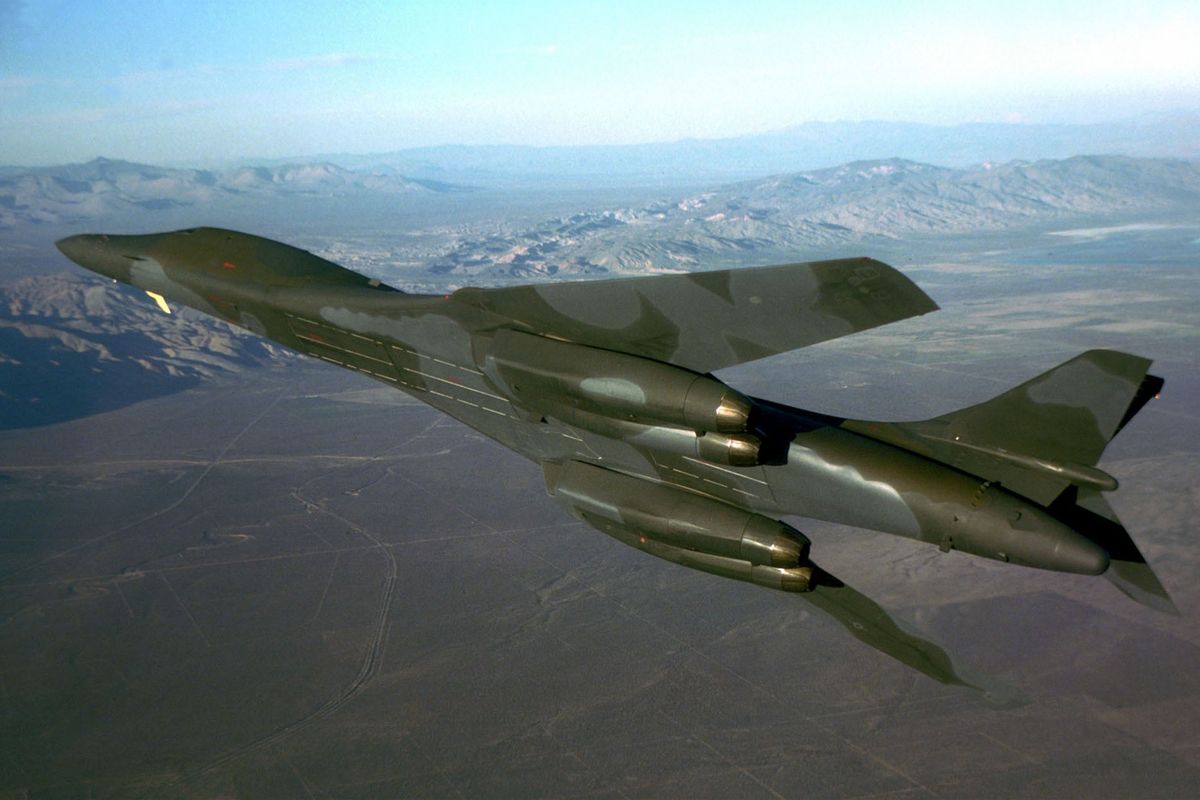Syria's Kurds – led by the Democratic Union Party (PYD) and its military arm the YPG – have received much attention for their role as the cornerstone of U.S.-allied local forces fighting ISIS. However, as their battlefield successes continue, the PYD is building a miniature independent state in northern Syria called Rojava, which is built on the radical socialist, feminist, environmentalist ideology of the imprisoned leader of the PKK in Turkey, Abdullah Ocalan. The Cipher Brief’s Fritz Lodge spoke with Turkish journalist and columnist for Al Monitor, Amberin Zaman, about the threat this poses to Turkey and asked what the future of Northern Syria will be once the battle against ISIS is finished.
The Cipher Brief: Most coverage of the Kurds in Syria focuses on the military element of the YPG’s role in the U.S.-led anti-ISIS coalition, but there is also a political element in which the PYD is working to create a rather unique governing system in the Kurdish-controlled region of northern Syria, commonly known as Rojava. What is the makeup of this emerging statelet and what kind of political systems do you see developing there?
Amberin Zaman: As you know, the dominant party there is the PYD, which is the political arm of the YPG, and they are all part of a broader movement that is inspired by Abdullah Ocalan, the imprisoned leader of the PKK. Ocalan spent a significant amount of time in Syria, because soon after he founded his party in 1978, Ocalan fled to Syria to escape an impending coup in Turkey. He then set up shop in Syria and lived there until 1999.
You have to be familiar with Ocalan’s philosophy to understand the system developing in northern Syria, and also understand that it’s most recent iteration is a very radical sort of communalism that they are advocating. It’s grassroots, focused on people power, they don’t believe in national borders, they don’t believe in sovereignty, etc. But of course, there is this real gap between the rhetoric and the motivation, which is Kurdish nationalism.
How do you reconcile that with the fact that, particularly in northern Syria, the Kurdish population is far less homogenous than it might be in Kurdish Iraq for instance? You are trying to govern over these territories that are not homogenously Kurdish, and yet your principle motivating ethos is Kurdish nationalism, how do you reconcile that? It’s a very tricky question, and as it plays out in Hasaka, for instance, where we’ve seen reports that the Kurds are now talking about introducing Kurdish-language education in an area with a large Arab population. In this case, you begin to hit the wall of Arab nationalism.
It’s a tricky situation. Everyone is being very pragmatic right now and forming alliances that are basically a matter of survival, so they paper over these issues. However, absent a conflict situation, how easy will it then be for this Kurdish-dominated movement to try and govern over these areas and instill this radical ideology over Arabs and others, to whom it will be very alien? Given how conservative Arab society is, how happy would an Arab tribal leader be to see his daughter running around without her head covered, carrying a rifle or working at a high level in the administration?
This will happen because one of the things that the PYD appears to be very sincere about is gender equality. Women play a very significant role in the movement, and I think this is what makes this movement more appealing than anything else, the fact that they seem to be empowering women. But this is very threatening to other populations in these areas, as well as other factions within the Syrian Democratic Forces.
TCB: Talking about this feminist aspect, the ideology of the PYD has often been described as a sort of uniquely socialist, anarchist, radical feminist and environmental experiment in governance – a utopia to some – but you’re saying that this is balanced with strong elements of Kurdish nationalism. How does that work?
Zaman: Balanced is the wrong word. I would say that there is a deep tension between these two ideologies. One is an ideology that is inclusive, willing to share power with other minorities, and I do think that as long as these minorities remain nonthreatening, it’s easy to be magnanimous. But, at the end of the day, we know that this movement – the PKK – isn’t really into power sharing. In a military sense, this is why it’s been so effective, because it’s very cohesive and hierarchical, even though the guiding philosophy of the group is supposed to be the opposite. So there are lots of contradictions in this.
TCB: What keeps this tension from breaking through at the moment?
Zaman: It’s too early to pass judgment on how successful the PYD model has been. First of all, it’s operating in a vacuum, it’s a conflict situation so people are far more tolerant of everything that doesn’t work as long as they receive security and some basic services. For as long as we’re in a conflict situation, we have no ways of measuring the success or lack thereof of this model.
Second, they face a very real economic challenge. Conflict continues and Turkey has sealed their border with northern Syria, which places the Kurds under enormous pressure. So this is a rather grey existence really.
TCB: And they are forced to turn to the Assad regime for economic connectivity?
Zaman: Oh, they still depend on the Assad regime for a number of things, yes. And education is very complicated in Rojava, because you still need certification from the central government for your diploma to be recognized. So, if you are a parent, you’re still going to want your child to attend a school that delivers something that is globally recognized.
It’s still a very transitional, grey phase that northern Syria is going through, and while parallels are happily drawn between what’s happening there with what happened in the past with northern Iraq, I think we need to be very careful about that because the dynamics are quite different. The United States is not an occupying force in Syria, it hasn’t overthrown the regime, there are competing powers who are active on the ground, which was not quite the case in Iraq. You have Turkish troops, a Russian zone of influence, Iran is a major player, there is no ethnic homogeneity in the areas under Kurdish control, all of this makes things very difficult.
The fact that the dominant force in northern Syria – the PYD – is pretty much the PKK and Turkey will inevitably want to deal with them at some point absent some kind of peace deal with the PKK at home, as well as the fact that Iraq’s Kurds are effectively allied with Ankara in many ways, really squeezes the Syrian Kurds. On the one hand, they’ve managed to triple their territory, but the more territory they acquire, the more vulnerable they become, because without a big regional power backing them, they will face a very difficult strategic situation if and when the U.S. pulls out of Syria.
TCB: It’s interesting you bring up the Kurdistan Regional Government (KRG) in Iraq as the model for Kurdish independence because relations between the KRG and the PYD in Rojava are not warm. How would you characterize that relationship?
Zaman: It’s complicated because the political leadership on both sides is hostile and ideologically very different. The powers backing them are also in competition, while at the same time, being very interested in keeping the Kurds from gaining independence – principally, Iran and Turkey.
But of course, ordinary people on both sides are very unhappy about the idea of Kurds fighting Kurds, so the political leaders on both sides need to be very careful about that. The Kurdish people no longer tolerate the kind of fratricide that used to prevail, especially throughout the 1990s.
TCB: What effect do you think that the independence referendum, scheduled to take place on September 25, will have on Rojava?
Zaman: I think there will be mixed feelings. You will find that a lot of the pro-PKK Kurds will argue that this is ill timed and that it is all about consolidating the power of KRG President Masoud Barzani and his Kurdistan Democratic Party (KDP). This is partially accurate. independence would make Barzani a far more visible leader of the Kurds, and he certainly has a lot more global legitimacy now than any other leader. The other person who lays claim to the title of global Kurdish leadership [Ocalan] is sitting in a Turkish jail. Nevertheless, Ocalan oversees a movement – if not practically then in spirit – which is becoming increasingly powerful.
TCB: The Syrian Kurds have had many successes, but the key to their security is U.S. support, and it is unclear how long the U.S. will stick around. In your mind, what can the Syrian Kurds look towards, what kind of a long term strategy can they devise to deal with this?
Zaman: I think their strategy is just to try to spin this for as long as they can with the U.S. What they really want would be political relations with the United States but those don’t seem to be forthcoming at all. Perhaps promises have been made, but I very much doubt it. I think Jonathan Cohen [Deputy Assistant Secretary for European and Eurasian Affairs] spelled it out pretty plainly at the Middle East Institute when he said that this relationship is transactional. He said that the United States has never promised the YPG anything, and he’s probably telling the truth. However, the relationship on the ground – military to military – has to be different, there must be a bond that has been formed over the past five years, but these are not the people who make the final decision.
I think the PKK and PYD are savvy enough to understand this, and I actually think they feel comfortable navigating relations with several different powers rather than one. I think they prefer when these powers are in competition rather than cooperating.
Still, although relations between the U.S. and Turkey are at a low point, I think there is a sort of parallel dynamic in which U.S. Defense Secretary James Mattis recognizes that Turkey is an extremely crucial ally that the U.S. cannot afford to lose. Turkey is a great piece of real estate with critical strategic value for the United States.













